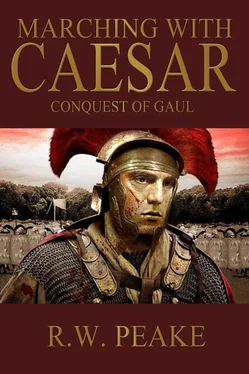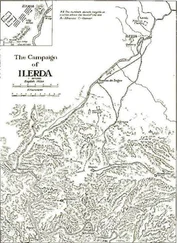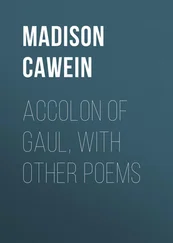R. Peake - Marching With Caesar - Conquest of Gaul
Здесь есть возможность читать онлайн «R. Peake - Marching With Caesar - Conquest of Gaul» весь текст электронной книги совершенно бесплатно (целиком полную версию без сокращений). В некоторых случаях можно слушать аудио, скачать через торрент в формате fb2 и присутствует краткое содержание. Жанр: Исторические приключения, на английском языке. Описание произведения, (предисловие) а так же отзывы посетителей доступны на портале библиотеки ЛибКат.
- Название:Marching With Caesar: Conquest of Gaul
- Автор:
- Жанр:
- Год:неизвестен
- ISBN:нет данных
- Рейтинг книги:3 / 5. Голосов: 1
-
Избранное:Добавить в избранное
- Отзывы:
-
Ваша оценка:
- 60
- 1
- 2
- 3
- 4
- 5
Marching With Caesar: Conquest of Gaul: краткое содержание, описание и аннотация
Предлагаем к чтению аннотацию, описание, краткое содержание или предисловие (зависит от того, что написал сам автор книги «Marching With Caesar: Conquest of Gaul»). Если вы не нашли необходимую информацию о книге — напишите в комментариях, мы постараемся отыскать её.
Marching With Caesar: Conquest of Gaul — читать онлайн бесплатно полную книгу (весь текст) целиком
Ниже представлен текст книги, разбитый по страницам. Система сохранения места последней прочитанной страницы, позволяет с удобством читать онлайн бесплатно книгу «Marching With Caesar: Conquest of Gaul», без необходимости каждый раз заново искать на чём Вы остановились. Поставьте закладку, и сможете в любой момент перейти на страницу, на которой закончили чтение.
Интервал:
Закладка:
Back in camp, the word went out that the repairs to the fleet were finished and we were told to break down the camp, prompting great jubilation. We had experienced enough of this island, although there was little doubt in our minds that we would be back.
“Caesar’s not going to be satisfied with burning some crops. He’s got to find some villages to plunder and people to enslave to make himself richer than he already is,” Vibius declared as we were packing.
Biting back a sharp reply, partly because I did not want to quarrel, it was also because I knew that Vibius was probably right, and I did not want to give him the satisfaction of reminding me of it when we found ourselves on these shores again. Even as we were striking our tents, another delegation of Britons came to the camp, yet again begging forgiveness for their mistake in attacking us for the third time. And yet again, Caesar gave them pardon, although he doubled the number of hostages he demanded this time around. This was one decision that we did not agree with, but looking at it now, I can see that Caesar really had no other choice. We were packing up to leave and would not be back for several months. If he refused to accept their apology and peaceful overtures, this would warn them that war was coming, whereupon they would spend the winter months in preparation. They may have done that anyway, but with Caesar refusing them, this was a certainty. Accordingly, Caesar made the choice to allow the pretense of peace between us. By the time the delegation left, the camp was stricken, except for the ramparts, which are always last, and we put all the other parts of the camp that used wood to the torch. That done, we pulled up the stakes along the rampart then filled in the ditch before marching down to the beach to load up on the ships and sail back to the mainland.
Leaving the shores of Britannia in the same way we left to get there, we finally shoved off at midnight, heading back to land at the same place where we embarked. Our trip was uneventful, except for the heaving of our stomachs, the prospect of which we simply accepted with resignation as the cost for getting back to Gaul, and we were happy enough when about mid-morning, land was sighted. There before us was the thin green strip that we had expected to see when we first saw Britannia, and as we approached, we began talking about what we hoped to do when were finally safe on dry land. Since the end of campaign season was almost on us; it was now the second week in September, and we would be marching to winter quarters soon, not surprisingly much of the talk and the inevitable wagering centered on where we would be quartered. Nobody thought that we would be staying this far west, in the event there was trouble farther east, but there was much speculation about how far north or how far south. Also, going into our fourth winter, we had developed favorite spots where we wintered before, along with not so favorite spots to which we held no desire to go back. This was how we passed the remaining time before entering the harbor, the men from the other Legions lining the hill of the camp to watch us disembark. Men looked for friends they had made, or sometimes even relatives, in the faces of the 7th and 10th as we went marching past, sharing jokes and insults with us. Unfortunately, I could see the faces of some of the men who did not find who they were looking for, and I knew that there would be mourning around some of the fires in the camp that night.
Not all of us arrived at the same harbor. Two ships, with about 300 men from the 10th, landed further south in Morini territory and the natives got carried away with the idea of attacking the Legionaries and taking their weapons. Luckily for our men they were immediately missed, scouts were sent out looking for them and one of the mounted men saw the Legionaries formed in a square, surrounded by a few thousand men. Galloping back, the camp was alerted, with all of our available cavalry mounted and out of the gate in moments, racing to the rescue of the stranded men. Because we had just arrived and were still in full uniform, we were ordered to follow behind, and since these were men of the 10th we needed no urging, moving at double time down the road behind the cavalry. By the time we arrived at the scene, the cavalry had already driven the Morini off, the Gauls fleeing so hastily that some of them actually dropped their weapons, leaving them scattered on the ground around the Legionaries. Marching back to camp, reunited with our missing men, we arrived only to find out the moment we entered camp that we were going to be leaving the next morning to punish the Morini for their transgression. This order was met by curses and groans, the feeling being that we had done enough, there being other Legions in camp who had been doing nothing all season. Nevertheless, we marched out the next morning as ordered, the 7th also being selected, commanded by Labienus. Marching south, the gods smiled on us in one sense; there had been a drought in that area and the marshes, which the Morini used as refuge before, were now dried up, so we did not have to march in knee deep, slimy muck. It also meant that the Morini had nowhere to hide, and after one very minor skirmish where we lost nobody and they lost a few dozen, they submitted. Again.
Chapter 9- Second Invasion of Britain
Despite our campaigning being done, any hopes we held for a soft winter were quickly shattered. Caesar did not leave us at his normal time, staying with us until mid-November, once we were distributed in our winter camps, the locations of which were another source of complaining. None of us got our wish to be further south; instead, the Legions were distributed throughout Belgae territory, the feeling being, correct as it turned out, that they were still not completely pacified. This winter, however, was not going to be one of our usual routine, because Caesar had plans, ambitious ones at that. He ordered a fleet built, numbering more than 600 ships, requiring each of our camps to be on a river and relatively close to the sea, at a point where the river was wide and deep enough to float the finished ships down. Our particular camp was on the Sequana River, a few miles inland, in the territory of the Veliocasses, who lived on a narrow strip of land inland along the river for several miles. For this project, we all worked as shipbuilders, with Gauls skilled in these matters being brought in to teach us what we needed to do, although they directed the work. I will say that, despite moaning and complaining about performing this kind of labor, it did make the time pass by more quickly, and I for one enjoyed the physical exertion. The ships we built were different than the ones that took us to Britannia and were of Caesar’s design; having seen the difficulties we experienced in going over the side, he ordered that our new fleet be constructed with much lower gunwales to enable easier unloading. They were also wider, with flatter bottoms that enabled them to get closer to shore, improvements we all appreciated, and which I pointed out to Vibius as an example that Caesar truly cared for our well-being, to which he said nothing. When Caesar left us, he went once again to Illyricum, this time because there was trouble brewing. Also leaving the army was young Publius Crassus, not only one of the most liked of the Tribunes and Legates, but also one of the most respected, a rare feat. Labienus we respected yet did not particularly like because of his sour disposition and the fact that he could be excessively harsh in his discipline, but he could fight, and for that we at least respected him. When we heard of young Crassus’ death at Carrhae, from all accounts due to his own father’s incompetence and arrogance, there was true sorrow in the army.
Januarius of the year of the Consulship of Lucius Domitius Ahenobarbus and Appius Claudius Pulcher, 456 years after the founding of the Republic marked the beginning of our fifth year in Gaul. I was turning 24 that year, 25 as far as the army was concerned, and I was still happy that I had joined the Legions. Vibius I was not so sure about; he loved being a Legionary as much as I did, but oh, how he pined for Juno. These years apart had not changed their love for each other as far as I could tell; they still wrote each other constantly, and I believe that it was only this enforced separation that marred Vibius’ time in the army. He never let it interfere with his duties, yet there were times at night around the fire that I would glance at him to see him staring at but not seeing the flames, with a melancholy look on his face. Whenever I saw him like this I did my best to cheer him up, although I do not know whether I was any help or not. As for the rest of my friends, much was the same as before. We had adjusted to the death of Romulus, but we never forgot him, and many a night one of his antics was a topic of discussion around the fire, all of us laughing as hard as if it had happened yesterday. The change in Didius turned out to be temporary; soon enough he was back to his games and his surliness. His presence and attitude became something like a spot on your boots that rubs you wrong that never goes away no matter how hard you try to remove it, until you give up and a callous develops that keeps from rubbing you raw. Having grown accustomed to his ways, while we did not like them we accepted them, mainly because we had no choice. For his part, he learned how far he could push the rest of us and did not cross that line, at least not very often. Atilius’ flogging had scared him straight, if only for a time, although I will say that he was much slyer about his forays out of the camp, and they did happen less often. Vellusius remained unchanged, although he did laugh less than before, something I attributed more to the absence of Romulus than I did to any change in him. Scribonius was, next to Vibius, my closest friend, partly because of our proximity to each other in formations and on marches. Also, I respected his intelligence and his way of thinking things through before weighing in on a subject. Calienus we did not see as much of as we had when he was in our tent, partly due to his duties, but mostly due to Gisela, with whom he spent every possible moment and for which none of us blamed him. He trusted her well enough, but he had no trust in his fellow soldiers, quite rightly I might add. We may kill for each other, and we may die for each other, but I quickly saw that on the subject of women, there were no rules of conduct. If a man wanted a woman and she belonged to another Legionary, the only consideration was whether or not one could defeat the spurned lover in a fight of some sort. Only in the case of very close friends, and sometimes not even then, did the bonds of friendship matter at all. Another happy consequence of doing the work that we did building ships meant that we had less time to get in trouble, with that winter seeing fewer trips to the forum to witness punishments than any other year before this.
Читать дальшеИнтервал:
Закладка:
Похожие книги на «Marching With Caesar: Conquest of Gaul»
Представляем Вашему вниманию похожие книги на «Marching With Caesar: Conquest of Gaul» списком для выбора. Мы отобрали схожую по названию и смыслу литературу в надежде предоставить читателям больше вариантов отыскать новые, интересные, ещё непрочитанные произведения.
Обсуждение, отзывы о книге «Marching With Caesar: Conquest of Gaul» и просто собственные мнения читателей. Оставьте ваши комментарии, напишите, что Вы думаете о произведении, его смысле или главных героях. Укажите что конкретно понравилось, а что нет, и почему Вы так считаете.












